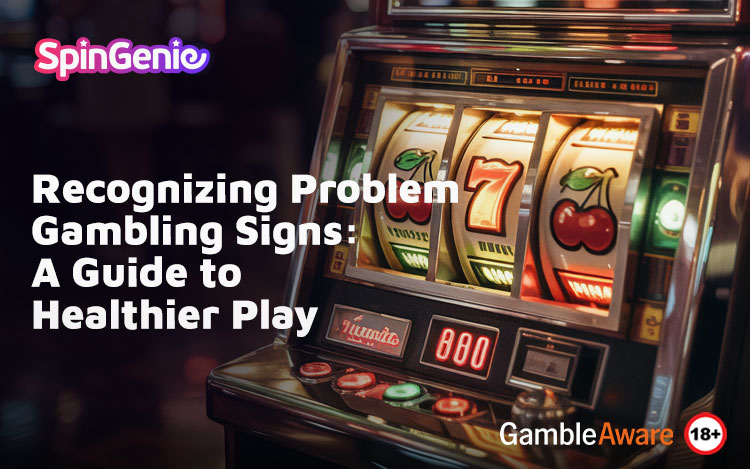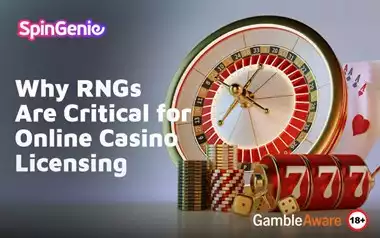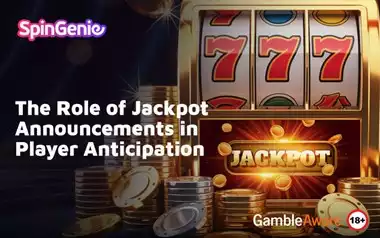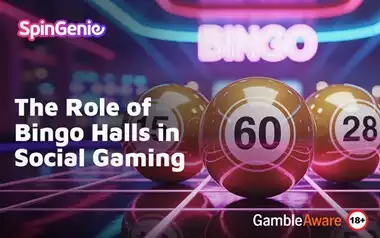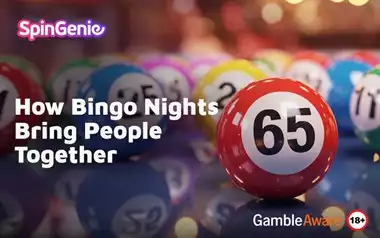Gambling should always remain an entertaining pastime rather than a source of income or emotional escape. For most players who enjoy real money online casino games, this balance comes naturally. However, for some individuals, gambling can transition from casual entertainment to problematic behavior with serious consequences. Recognizing the early warning signs of gambling addiction is crucial for maintaining control and seeking help before significant harm occurs.
Problem gambling exists on a spectrum, ranging from mild risky behavior to severe addiction. Unlike substance dependencies, gambling problems often develop gradually and can be harder to recognize—both for the individual and their loved ones. The transition typically begins when gambling stops being about entertainment and starts serving other emotional or financial needs. By understanding the common indicators, players can monitor their own behavior and make adjustments before small issues become major problems.
Behavioral Warning Signs
Changes in daily habits and routines often provide the first visible clues of developing gambling issues. These behavioral red flags may appear subtle at first but tend to escalate over time if left unaddressed.
One of the most telling signs is increased time and money spent gambling. This might manifest as longer sessions, more frequent visits to gambling sites, or consistently exceeding predetermined budgeting for slots limits. The individual may start sacrificing other activities they once enjoyed in favor of gambling opportunities. Social isolation often accompanies this shift, as the person withdraws from friends and family to gamble or hide their behavior.
Work or academic performance frequently suffers as gambling takes priority. This could involve decreased productivity, frequent tardiness, or unexplained absences. Financial behaviors also change noticeably—the person might borrow money frequently, sell possessions unexpectedly, or show unusual concern about financial matters without clear explanation. Missing bill payments despite having adequate income often indicates gambling-related financial strain.
Emotional Indicators
Problem gambling affects mental health and emotional stability in recognizable ways. The individual may display unusual mood swings that correlate with gambling wins and losses—extreme euphoria after wins and deep depression or irritability following losses. Over time, they often develop an obsessive preoccupation with gambling, constantly planning their next session or strategizing ways to recover losses.
Cognitive distortions frequently emerge as the person rationalizes their behavior. Common thought patterns include:
- The illusion of control ("I've figured out how to beat the system")
- Gambler's fallacy ("I'm due for a win after so many losses")
- Minimization ("It's not that much money in the grand scheme")
- Magical thinking ("This lucky charm will change my odds")
Anxiety and depression often develop or worsen alongside problem gambling. The individual might appear constantly stressed or distracted, only finding temporary relief while gambling. Sleep disturbances are common, either from staying up late to gamble or stress-related insomnia.
Physical and Social Consequences
As gambling problems progress, they frequently produce visible physical and social effects. The person may appear fatigued or disheveled from neglecting self-care routines. Weight fluctuations—either gain or loss—can occur as regular eating habits deteriorate. Personal relationships inevitably suffer, with increased conflicts about money, time management, or broken promises.
Financial consequences often become impossible to ignore. These may include:
- Maxed-out credit cards or multiple payday loans
- Unexplained withdrawals or missing savings
- Requests for loans with vague repayment plans
- Legal issues related to gambling debts or financial mismanagement
Workplace problems frequently emerge, ranging from decreased performance to outright theft or fraud to fund gambling habits. The individual might switch jobs frequently or have unexplained gaps in employment history related to gambling issues.
Self-Assessment Questions
Honest self-reflection can help identify potential gambling problems before they escalate. Consider these questions:
- Have you ever felt the need to gamble with increasing amounts of money to achieve the same entertainment?
- Have you tried unsuccessfully to control, cut back, or stop gambling?
- Do you gamble as a way to escape problems or relieve feelings of helplessness, guilt, or depression?
- After losing money gambling, do you feel you must return as soon as possible to win back losses?
- Have you lied to conceal your gambling activities or their extent?
- Have you jeopardized or lost significant relationships, jobs, or opportunities because of gambling?
- Have you relied on others to provide money to relieve desperate financial situations caused by gambling?
The Progression of Problem Gambling
Gambling addiction typically develops in stages, though not everyone follows the same path:
1. Winning Phase
Early big wins create enjoyment and reinforce gambling behavior. The person develops overconfidence in their gambling skills.
2. Losing Phase
Losses accumulate, leading to chasing behavior. The individual begins gambling alone and thinking about it constantly.
3. Critical Phase
Gambling becomes the central focus of life. The person may resort to illegal activities to fund gambling or pay debts.
4. Turning Point
The individual may recognize their loss of control but feel overwhelmed by the situation. It’s important to understand that while the emotional toll can be severe, recovery is always possible with the right support. Seeking help, such as professional counseling or joining support groups, can provide the tools needed to regain control and rebuild a healthier relationship with gambling. No one has to face this challenge alone. Help is available, and many people successfully recover with the right interventions.
Risk Factors and Vulnerable Groups
Certain factors increase susceptibility to gambling problems:
Mental & Emotional Factors
- Impulsivity or sensation-seeking personality
- History of depression or anxiety
- Other addictive behaviors
- Poor coping mechanisms for stress
Social Factors
- Family history of gambling problems
- Peer groups that gamble heavily
- Early exposure to gambling activities
- Cultural attitudes that normalize excessive gambling
Situational Factors
- Financial instability
- Major life stressors (job loss, divorce, bereavement)
- Easy access to gambling opportunities
- Significant early wins that create unrealistic expectations
Young adults and middle-aged men statistically show higher rates of problem gambling, though addiction can affect anyone. Individuals with ADHD or bipolar disorder may be particularly vulnerable due to impulsivity characteristics.
Support and Treatment Options
Numerous effective treatments exist for problem gambling:
Professional Counseling
Cognitive Behavioral Therapy (CBT) helps identify and change problematic thought patterns and behaviors. Specialized gambling counselors provide nonjudgmental support.
Support Groups
Organizations like Gamblers Anonymous offer peer support through structured 12-step programs. Many find sharing experiences with others in recovery invaluable.
Financial Counseling
Credit advisors can help restructure debts and create realistic repayment plans. This reduces stress and prevents further financial damage.
Medication
In some cases, antidepressants or mood stabilizers may help address underlying mental health components.
Self-Help Strategies
- Complete gambling abstinence for serious cases
- Strict financial controls (relinquishing access to funds)
- Blocking gambling websites and apps
- Developing alternative hobbies and social connections
Online resources like responsible gambling resources provide immediate access to help without requiring in-person visits.
Prevention Strategies
Healthy gambling habits prevent most problems from developing:
Set Clear Limits
Establish and stick to strict time and money boundaries for gambling activities. Use casino tools to enforce these limits automatically.
Balance Activities
Ensure gambling doesn't displace other important life areas—maintain diverse hobbies and social connections.
Monitor Emotions
Avoid gambling when feeling depressed, anxious, or otherwise emotionally vulnerable.
Take Breaks
Regular gambling-free periods help maintain perspective and prevent obsessive patterns.
Stay Informed
Understand the true odds and randomness of games to avoid cognitive distortions.
Involve Others
Share your gambling habits with trusted friends or family who can provide objective feedback.
Helping Someone with a Gambling Problem
If you're concerned about a loved one:
- Educate yourself about problem gambling to understand what they're experiencing.
- Choose the right time to talk—when they're calm and sober.
- Express concern without judgment or accusations.
- Avoid enabling—don't lend money or help cover gambling debts.
- Suggest professional help and offer to assist in finding resources.
- Take care of yourself—consider support groups for affected families.
Remember that recovery is a process with potential relapses. Patience and consistent support make a significant difference.
The Role of Online Casinos in Responsible Gambling
Reputable operators like Spin Genie prioritize player protection through:
Self-Assessment Tools
Questionnaires that help players evaluate their gambling habits.
Reality Checks
Regular reminders of time and money spent during sessions.
Self-Exclusion Options
Ability to voluntarily block access for predetermined periods.
Deposit Limits
Player-defined caps on funding amounts over specific timeframes.
Access to Support
Direct links to counseling services and help organizations.
These measures demonstrate the industry's commitment to keeping gambling a safe form of entertainment rather than a source of harm. If gambling stops being fun, seek help. For safer play, visit Spin Genie UK and use our responsible gaming tools.
